If you’ve been keeping up with the Athletic Bookworms, then you’re probably already done with “Let Your Mind Run: A Memoir of Thinking My Way to Victory” by by Deena Kastor with Michelle Hamilton. I took the full two months to read this book because a) I was reading a bunch of other fiction for fun because it’s summer, b) I was really enjoying it and wanted to savor it, and c) I had my 50KM trail race at the end of August and I wanted to keep reading this book up til the day of so I would have a steady dose of motivation from a marathoner.
The book itself is super well written, Kastor and Hamilton made a great writing team. It flowed well, and I was happy that so much time was spent on her daily routines, her mindset and how she trained differently over the years, versus just a bunch of strung-together race reports. There was enough racing action in it that it was fast-paced and exciting, but to me, routines and reading about training strategies and making it through tough workouts was a lot more meaningful. So, let’s talk about what I learned!
“Eventually, though, I realized a good attitude went far beyond the general idea of staying positive. It was part of a discipline, a long-cultivated habit of building and sustaining a positive mind capable of turning every experience into fuel. I’d always considered myself a happy, mostly cheerful person, but when I started paying attention to my thoughts, I was surprised to find there was a lot of negativity in my head.”
I love this because I completely relate. I don’t think of myself as being a negative person, but man, when I’m out training, a lot of the time, I’m doing countdowns til it’s done, I’m thinking about how crappy I’m feeling, I’m basically looking for aches and pains. But why am I not thinking about the positive side of the training until the run is over and I’m done? Then, I’m psyched about it! She starts to think about her thoughts as choices: “Every aspect of a run, from the pain it produced to the weather conditions, offered me a choice: Is this a thought that will slow me down? Or can I find a perspective that will speed me up?” I’ve tried using that approach on training runs lately, and it’s been a huge help—even today, out on a harder, faster run with the crew in town, I found myself starting to go negative, but quickly swapped it out with positives: the weather is gorgeous even if it is hot, I’m out running with friends—I HAVE FRIENDS TO RUN WITH—and I have FAST friends to run with, and I am 100% holding my own even if it feels hard.
Dial Your DTE
(That’s Daily Training Environment, a thing I didn’t know about until this year.) “Training only took up a couple of hours a day, but the rest of the day was just as critical, he [Coach Virgil] said,” Kastor writes. “How you spent the time between workouts and how well you took care of yourself directly affected performance. He added that I needed to eat an abundance of good food and nap every day.” And yes, most of us are working 9 to 5 and it might not be perfect, but how much more can you make your lifestyle suited to training? I know a lot of people we work with can be doing more!
“I told myself: Find a thought that serves you better. The more tired I got, the easier it was to be negative, and the more relentless I had to be.”
The power of positive thinking is obviously a huge chunk of this book, and I won’t spend a lot of time on it—but I’ll just say that reading so many descriptions of how Kastor flipped from negative thinking to positive thoughts was a HUGE help getting through the 50k race. Whenever I was starting to feel sorry for myself about another freaking hill, I made myself ‘rewind’ that thought and think about the fact that I was still outside, doing my favorite thing. I was feeling pretty good, all things considered. And I chose to do this! Then, I made myself smile (though I imagine it was more of a grimace) and get back to work. It really helped, honestly. And it made for a much happier post-race experience, I think.
“When I began to fade physically or mentally, gratitude was my answer. I inhaled the sound of the crowds and exhaled appreciation.”
She mentions reading The Artist’s Way by Julia Cameron, and I was super excited to read that—it’s been recommended a bunch of times to me but I’d never committed to really reading it or doing the exercises, like Morning Pages, that she prescribes. Now, I’m reading it and trying to put it in the context of both an athletic and creative tool! Gratitude journalling has been something I’ve done on and off over the years, but I’m trying to get back into the practice. (“Satisfaction, gratitude, and other positive emotions keep stress hormones at bay,” she writes a few chapters later. That’s what I’m trying to capture!)
Make the mundane special
“I bought pretty water glasses and kept fresh lemon water in the fridge to make hydrating more appealing. I placed lavender from the garden inside my shoes to freshen them up. I set out my favorite pajamas to wear for my nap. These simple additions made the sometimes-tedious work of training and recovery pleasurable, and discipline became secondary,” Kastor writes. This is something I don’t do enough and need to do way more often. Making the simple, everyday stuff that we know we need to do into something more akin to self-care and indulgence is freaking brilliant.
Define Yourself
Before winning in London, Kastor’s coach told her to, “Define yourself” on the course. “Define yourself. Their simplicity told me he believed I was ready to win. I grabbed that confidence and headed out to do it,” she writes. I think Define Yourself is going to be my new mantra for this next year/training block—I love it because it’s half rallying cry, half self-reflection. It can mean whatever you choose it to in the moment, and can constantly be shifting, but to me, it’s an awesome reminder that we should define ourselves, rather than let other people ‘suggest’ who we are.
Seriously, I can’t recommend this book enough, whatever sport you’re into. It’s fast-paced and a fun story with plenty of ups and downs, it’s so honestly written, and it’s also packed with practical and super philosophical wisdom. It’s not a sports psych book, by any stretch—just one woman learning about how to get in her own head, stay positive, and love running. But it will make you think about how you think, and give you some ways to change.
Missed it? You can still catch up: Get your copy here
|||
Before you go, get subscribed!






